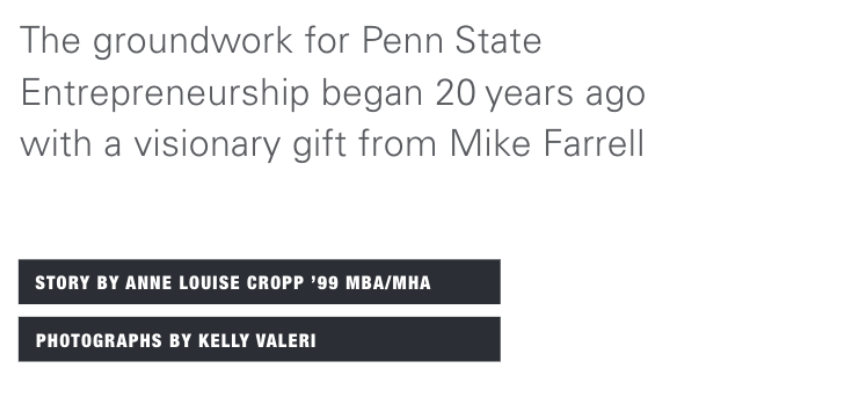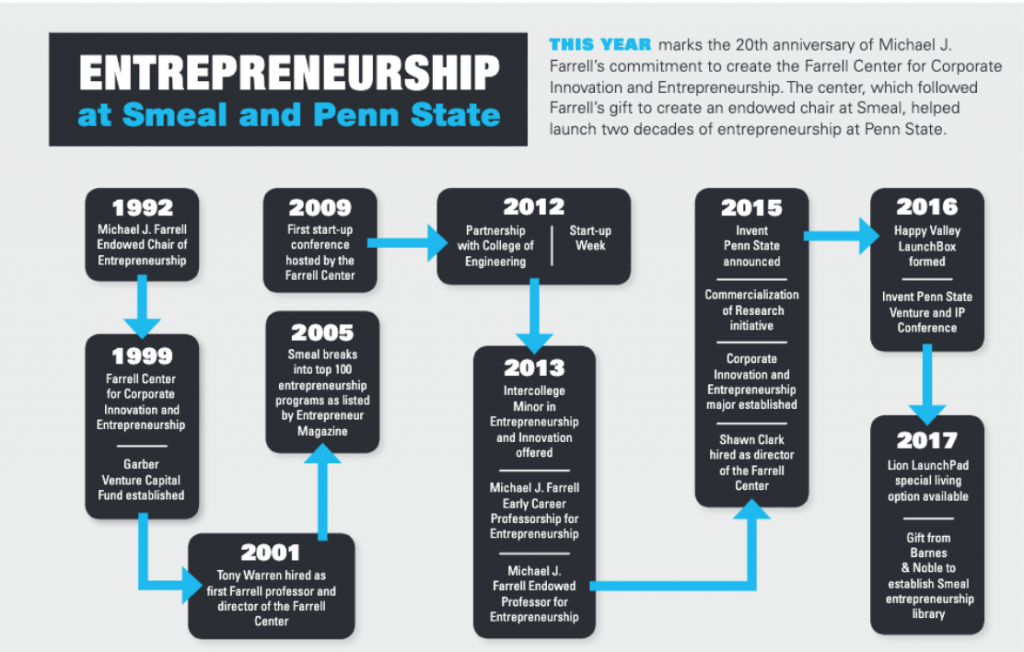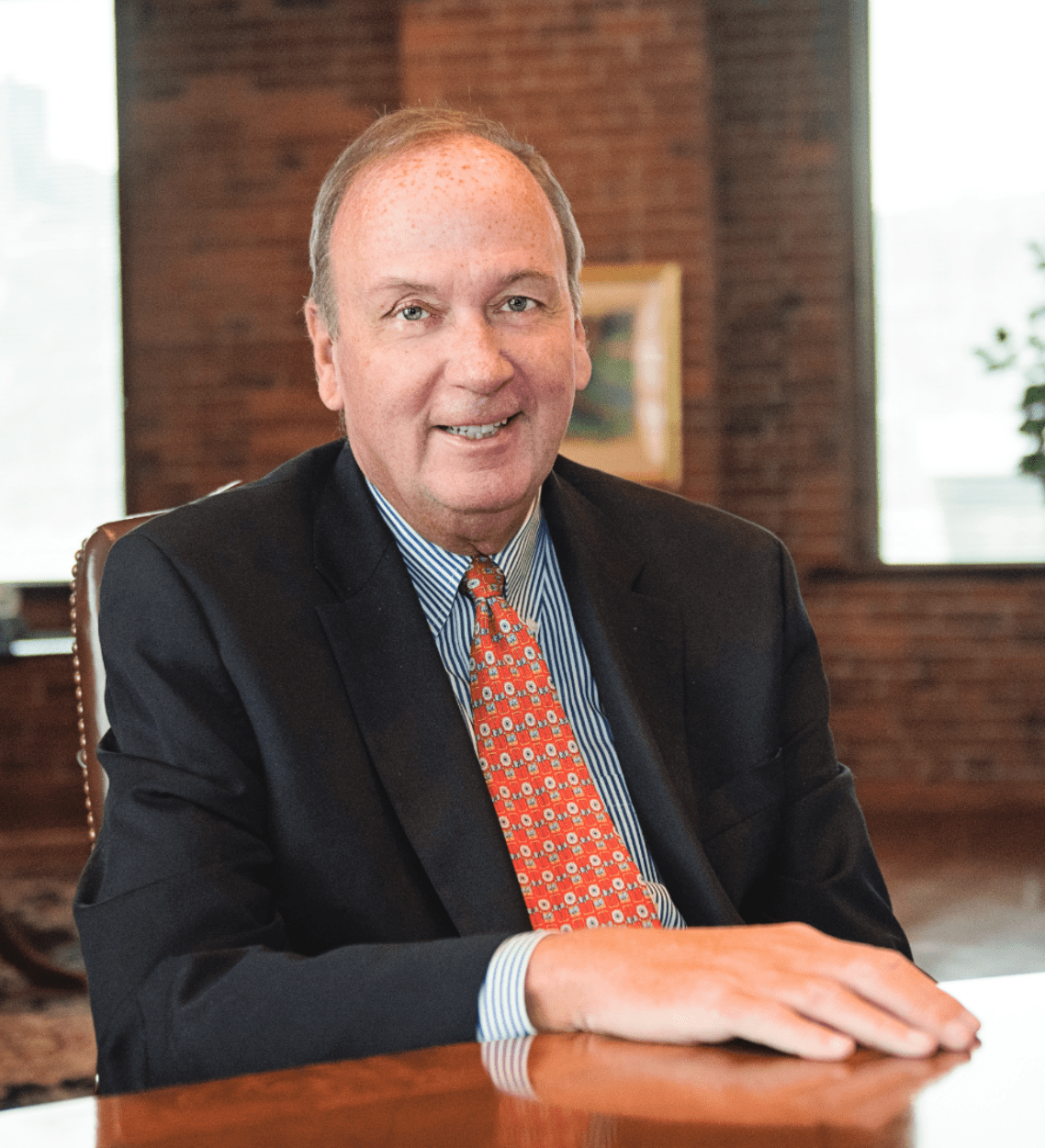
Farrell received the Penn State Alumni Association’s Alumni Fellow Award in 1993 and the University’s Distinguished Alumni Award, the highest honor presented to Penn State graduates, in 2001. He was presented the Smeal Accounting Department’s Distinguished Alumni Award in 1997.
MICHAEL J. FARRELL ’71 ACCTG says he has been “hustling to make a buck” since he was in grade school.
Growing up, his family did not have much, but Farrell and his siblings were taught important values that would carry them into successful careers. “My mother grew up during the Great Depression. When she turned 16, she dropped out of school to work as a telephone operator so that my uncle could attend Penn State,” Farrell says. “Her example created a great work ethic for me just like I’ve tried to do for (sons) Mike ’12 EDU, Chris ’14 SC&IS, and Jake ’17 ACCTG, ’18 MAcc.”
Starting with a newspaper route at the age of 9, to a job in a local shoe store at 16, to work in a steel mill during term breaks as a Penn State student, Farrell developed the type of entrepreneurial spirit that would define his adult life. It was not, however, a direct path. Because his uncle had been a successful engineer, Farrell enrolled at Penn State with plans to become an engineer himself. But by his sophomore year, he realised that it was not the right fit for him and he explored several other majors before finding his niche in accounting.
After a brief stint at a public accounting firm following graduation, Farrell accepted a position as corporate controller of a publicly traded company and later became vice president of finance at Motor Coils Manufacturing, a company whose primary business consisted of remanufacturing failed railroad locomotive motors. In 1984, Farrell partnered with the vice president of sales to purchase the company.
He was just 34 years old.
Today, he is chairman, chief executive officer, and president at Farrell & Co., an investment banking firm that buys companies that are not performing well but have great potential—firms to which he believes he and his partners can add great value.
Recognizing the unique nature of his own career path, Farrell wanted Penn State students to have the necessary tools to capitalize on entrepreneurial opportunities as they came along in their own careers. In 1992, he created the Michael J. Farrell Endowed Chair of Entrepreneurship in the Smeal College of Business. Seven years later, and long before entrepreneurship was considered in vogue, he made his visionary commitment to establish the Farrell Center for Corporate Innovation and Entrepreneurship.
“Early on, Mike saw the immense benefit to supporting entrepreneurial programming and education at the Smeal College of Business,” says Charles H. Whiteman, John and Becky Surma Dean. “Because of his gift to create the Farrell Center, Smeal led the way in supporting entrepreneurship with programming and education that touches hundreds of students, faculty, staff, inventors, startups, and entrepreneurs each year.”
“You don’t have to be the next Bill Gates to be an entrepreneur,” Farrell says. “Done properly, even something as ordinary as marketing electric motors and steel wheels and axles for the railroad industry can be quite profitable. When I created the center, I wanted there to be a place at Penn State where students were taught how to build a business plan. And I wanted them to see the practical side, not just what you could read in a book, about starting their own business.”
Farrell believes the most important attribute of successful entrepreneurs is the vision to think outside of the box, to find a better way to do something, and to really observe what is happening in the world. He recalled an opportunity to tour a locomotive wheel and axle manufacturing plant in the Ukraine when he was president of Standard Steel. There, Farrell observed a more efficient way to do things back home. When he returned to work, he led an effort to upgrade equipment, increasing productivity and driving down cost per unit.
Anthony Warren, who became the first Farrell professor in 2001 and was the inaugural director of the Farrell Center, said Farrell’s gift provided an impetus for the proliferation of entrepreneurial efforts at Penn State. “Back in the late 1990s, entrepreneurship was not a field that was really seen as the future,” says Warren, “but Mike’s gift really laid the groundwork for what is going on now, from cross-campus initiatives, to professional conferences, to the Invent Penn State initiative, to Happy Valley LaunchBox™ Powered by PNC Bank.”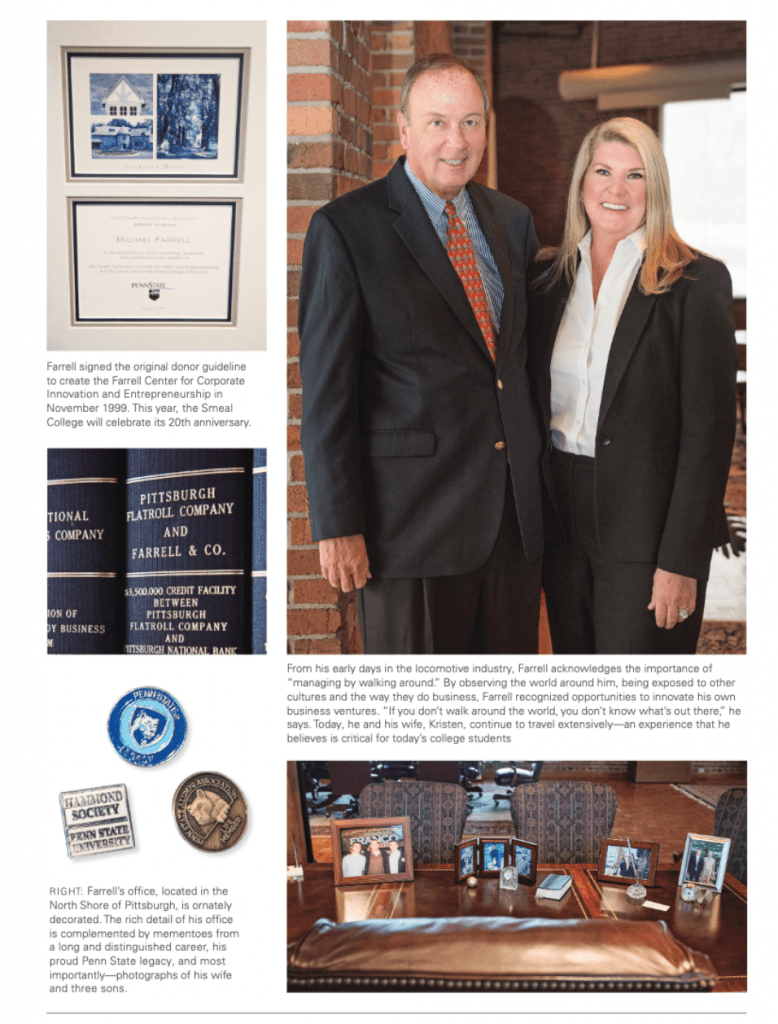
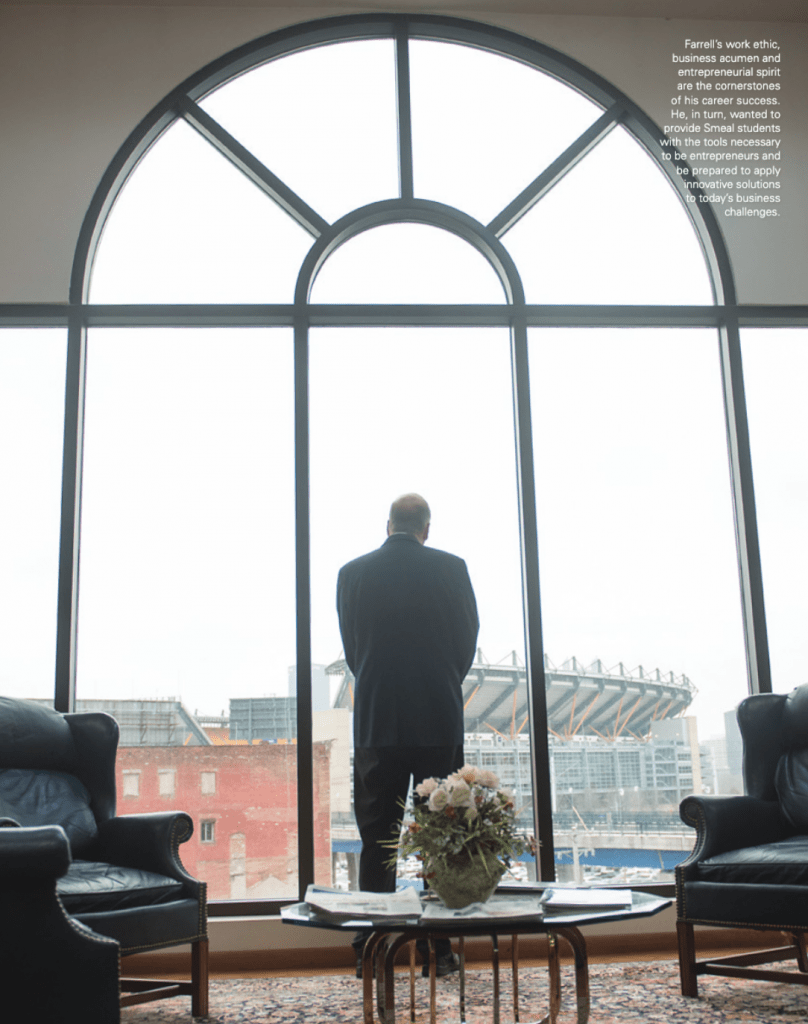
Shawn Clark ‘99 Ph.D., Michael J. Farrell Endowed Professor of Entrepreneurship and current director of the Farrell Center echoes that sentiment. “Mike had the foresight to help make entrepreneurship a strategic priority at Penn State and at Smeal long before the rest of the University,” Clark says. “His vision laid the foundation for all we do today, from teaching undergraduate students about entrepreneurship, to hiring MBA students to help faculty commercialize their inventions, to sponsoring student pitch contests and so much more.”
Clark follows Farrell’s example by continually striving to innovate, add and enhance services, and improve programmatic offerings over time. While the first 20 years of the Farrell Center were the catalyst of Penn State’s entrepreneurial ecosystem, he says the next 20 years have the potential to make an even bigger impact.
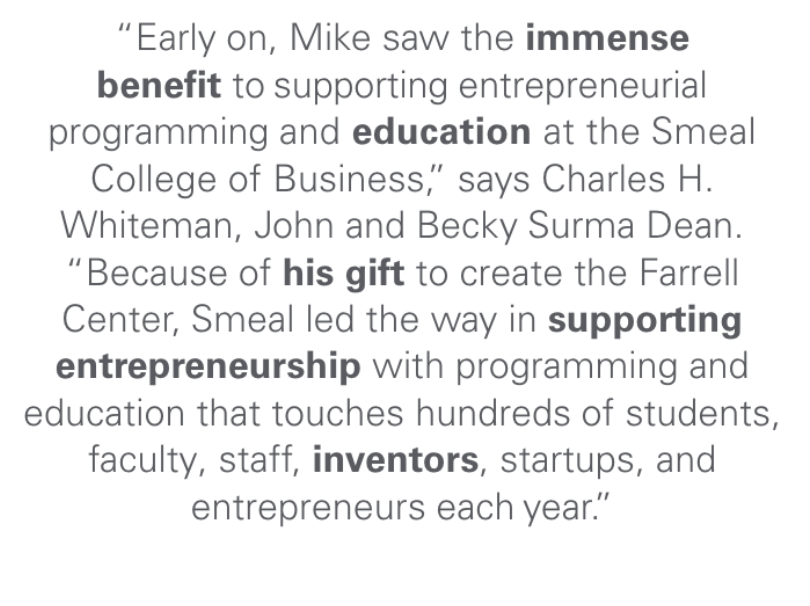 Through internships and experiential learning opportunities, Clark hopes to expand Smeal’s consulting solutions arm to provide new ventures and small businesses with management consulting and other professional services; to enable students to earn credit through the experience of planning for and launching a startup; to provide seed funding for student and faculty ventures; and to establish opportunities for students interested in social entrepreneurship.
Through internships and experiential learning opportunities, Clark hopes to expand Smeal’s consulting solutions arm to provide new ventures and small businesses with management consulting and other professional services; to enable students to earn credit through the experience of planning for and launching a startup; to provide seed funding for student and faculty ventures; and to establish opportunities for students interested in social entrepreneurship.
Acknowledging the global nature of business, Clark also plans to establish a study abroad program that helps students learn about business and entrepreneurship in other cultures, just as Farrell once did in the Ukraine, and to forge opportunities to apply business skills to humanitarian efforts. Farrell takes great pride in the evolution of the center that bears his name.
“Students are asking ‘can we start a company?’ or ‘how can we get financing?’ It’s much more real-world and practical, with students being ready to start and run their own businesses, than ever before,” he says.
That young boy who started “hustling to make a buck” all those years ago is changing lives for students across the University, helping new generations of entrepreneurs to make their own mark in the world. “Despite his many accomplishments and high profile as a business leader, Mike continues to take genuine interest in the Farrell Center and the myriad ways it impacts the lives of students,” Clark says. “That tells you where his heart lies.”

